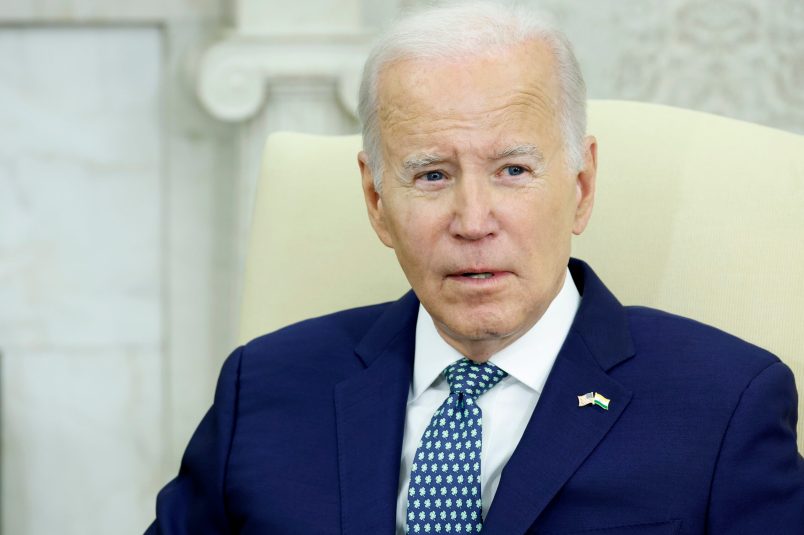A couple of days ago I wrote “that the withdrawal from Afghanistan remains one of Biden’s shining moments even though I know absolutely no one agrees with me.” Since then I’ve gotten a steady stream of emails from TPM Readers saying, “No, there’re at least two of us!” So perhaps, in the words made famous by Arrested Development, there are dozens of us. In all seriousness, it’s good to hear. And I won’t ever stop believing this. As I wrote in that post …
The United States remained in Afghanistan for ten years after anyone had any good explanation for why we were there. Obama wanted to leave. But he got rolled by the Pentagon. Biden knew that the only way to really leave was to leave. Someone had to bite the bullet. He bit that bullet and paid a big price and didn’t look back.
As I thought about this this morning, I wondered: does anyone really think today that it would be better if we still had a couple thousand U.S. troops in Afghanistan? Being completely out of the country is so obviously better that barely anyone would actually say this. Thus, the standard retort — that of course it was the right decision to get out, it just wasn’t handled well — is a dodge. The idea that you were ever going to completely withdraw from a country you’d A) been policing for two decades with a nominal government that B) had little ability to maintain itself without things getting ugly was a fantasy.
It’s a classic example of continuing to invest more in a failed investment not because there is any hope of getting a return but simply to put off ever having to write down the loss.
The competence dodge was always a way to say the obvious (withdrawal was the right and only decision) without accepting the consequences of that decision (the ugliness of finally pulling the plug). It’s just the thinking person’s version of having your cake and eating it too. You might as well drench an unstable hill and say you want a planned and orderly landslide.
Nor is leaving a couple thousand U.S. troops in Afghanistan forever some strawman. Down to the final days, Pentagon generals and Biden’s own secretary of defense, Lloyd Austin, himself a former four-star general, tried to persuade the president to leave a “residual force” of 2,500 U.S. troops in the country basically without limit. As described in this April 2021 New York Times account, it was an almost archetypal description of the proper interplay between the professional military and the country’s elected civilian leadership. The generals knew what was required to keep Afghanistan intact under its U.S.-backed government. In military terms, they were undoubtedly right. Biden accepted the advice but decided the cost was not worth it.
TPM Reader EC told me he agreed, and then added: “Perhaps it could have been done more smoothly, though I think that would have required the U.S. military command to take the idea seriously and really plan for it, which I don’t think they ever would have.” Perhaps. It’s also probably true that an institution charged for two decades with building up a U.S.-backed government was incapable of fully accepting the degree of its fragility. The ability for it to stand on its own was always just over the horizon. If you are charged with building the wall, it is always going to be hard, verging on impossible, to admit there is no wall.
TPM Reader JC says that it wasn’t Biden’s withdrawal agreement. It was Trump’s. Trump just left Biden to take the hit. I’ve never had much truck with this argument. It robs Biden of the credit he deserves. If Trump’s agreement was a bad one, Biden had the duty and the ability to scrap it and do something different. I think the best way to look at it is that the nominal agreement was mostly beside the point. Once the leg of the U.S. military was pulled out from under the Afghan government, it was going to fall. That was the reality the decision had to be made on.
TPM Reader PM questions the premise of the ugliness on the way out. “Got the people out, got the military out, got many Afghan allies out. With virtually no loss of life. Very big success. Bigger success than the damned war.”
Big picture, I think this is right. Most of what we remember from those days are chaotic viral videos. But in the final reckoning, even these arguments at the margins are beside the point. We elect politicians to make hard decisions and accept the consequences for them. That’s what Biden did — what three successive predecessors proved unable to do.




